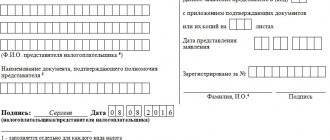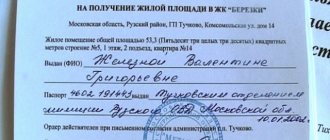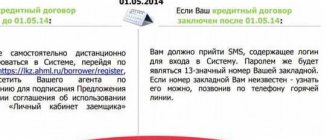What is escheat property?
The property of a testator who has no heirs, or who voluntarily refused the inheritance, or, due to certain circumstances, are unworthy of it, will be considered escheated.
According to the Civil Code, as amended to this day, the procedure for registering property as escheat must be regulated by law. But to date, such a law has not been adopted; at the same time, escheated property is being registered. Therefore, judicial practice plays an important role in determining the procedure for acquiring property rights to escheated property.
Problems of inheritance of escheated property and refusal of inheritance
Refusal to inherit ordinary property that is not escheat is a fairly common and widespread practice. However, according to the law, the state’s refusal to accept escheated property is not permissible. This means that escheated property sooner or later automatically becomes the legal property of a subject of the Russian Federation or a municipal entity. Inheritance of escheated property can be carried out only after the established period for entering into inheritance has passed. The state cannot refuse to accept an inheritance, regardless of the specific value of the inheritance, its significance, etc.
The procedure for inheritance and accounting of escheated property is regulated by the current legislation of the Russian Federation. The main problems of inheriting escheated property are the lack of sufficient legal practice in this matter. Escheat is a fairly specific type of legal inheritance property. A huge number of problems arise when recognizing and confirming the fact of escheat.
In addition, serious difficulties may arise in situations where the heir, an individual, did not enter into his inheritance rights in a timely manner, and movable or immovable property became escheated. The reasons for this situation may be quite trivial, for example, the person simply did not know about the fact of opening an inheritance according to the law, and accordingly, the statute of limitations was missed through no fault of the heir. The result of this is a refusal to enter into inheritance rights and the return of the claim of the person who applied.
Be sure to read it! Judicial practice on gift agreements 2020
Circumstances under which property will be recognized as escheat
Property will be considered escheat if:
- The testator has no successors in all lines of succession.
- The testators did not submit applications for acceptance of the inheritance within the period established by law.
- The heirs were excluded from the right of inheritance.
- The heirs refused to accept the inheritance.
Lack of successors
If the deceased testator does not have a single successor in all lines of inheritance, his property will be recognized as escheat. But the notary who opens the inheritance case, although he has access to all the registers of the Ministry of Justice, cannot confidently assert that there are no successors for the testator, who did not have close relatives in the direct line.
Therefore, there have been no precedents in Russia for recognizing succession as escheat before the expiration of the period during which it can be accepted.
No statement
If no heir submits an application for acceptance within 6 months from the date of opening of the succession (death of the testator), such an inheritance will also be considered escheated. But such successors can extend the period for accepting the inheritance through the court, and as a rule, such processes take place.
The basis for a positive decision may be significant reasons why the deadline was missed, for example, illness or a long business trip of the successors. Therefore, inheritance of property as escheat is often refused, due to the availability of information about successors who missed the deadline for accepting the inheritance, but want to appeal it.
For example, we received an official written refusal from a notary - a mandatory document for extending the period for accepting succession through the courts.
Removal of applicants
In essence, this circumstance is a special case of the absence of successors. According to the law, heirs who, due to their actions, are unworthy, are excluded from the right to succession, and therefore are no longer considered as such. Negligent successors include:
- Heirs who have not fulfilled their duties to the deceased. In particular, regarding the organization of his burial.
- Successors who attempted the life of the testator or killed him. In the event that such a fact is supported by a court verdict.
- Heirs who tried to illegally increase their share of the inherited property. An appropriate court decision is also required here.
The removal of applicants does not always occur after the testator’s departure to another world. But the presence of established facts that are the basis for the removal of applicants, by default, excludes inheritance by such successors. For example, there is a court verdict in a case of a completed attempt by an heir to murder the testator.
If, at the time of his death, such a judgment is in force, the convicted successor will not have the right to succession without any additional findings or decisions of the court. But the testator, if he remains alive despite the unlawful actions of his negligent successors, has the right to bequeath his property to them again. If there is a will executed by a notary after the above-described circumstances arise, the successors will again receive the right to succession.
refusal of succession
The heirs have the right to refuse succession, for which they issue a written refusal, which is certified by a notary.
If all successors in all lines refuse succession, the inherited property will be considered escheated. But in practice this is difficult to imagine, because the heirs of the fourth and all subsequent lines may not only not communicate with the first line, but may not even be familiar with them.
And the task of the notary who opened the succession case will be to find all living relatives who can inherit from the deceased. Having the opportunity to familiarize yourself with the civil registry data, this will not be a problem if such successors live in Russia.
It is important to know that you can refuse to accept an inheritance within the established period for accepting it, so if the successors who lived with the deceased, and therefore are considered to have accepted the inheritance automatically, do not refuse the inheritance within six months, they will no longer be able to do this in the future, even through the courts. Extension of the period for refusal of succession is not provided for by current legislation.
Rules for accepting property recognized as escheat
Who is the heir to the escheated property? Following the provisions of Art. Art. 1151 of the Civil Code of the Russian Federation and 19 of the Housing Code of the Russian Federation, property rights, i.e. the right of ownership of objects, taking into account its type, when they are subject to inheritance by law, arises from self-government bodies.
These include:
- Local authorities (city, district, rural settlements).
- Cities of federal significance.
In this case, movable and/or immovable property must be located within the boundaries of a specific subject of state or municipal government.
Property objects and persons receiving it:
- Residential as well as non-residential premises (apartments, rooms, houses, buildings and structures) are subject to inclusion by local authorities in the housing stock, which belongs to the social fund. From it, local authorities provide residential premises (apartments, rooms, houses) to individuals on the basis of a rental agreement. Non-residential premises can be transferred to citizens or legal entities under contracts for commercial use.
- Real estate objects (buildings, structures), together with the land on which they are located.
- Shares in common ownership of real estate and land plots that are subject to inheritance.
- The inheritance of another part of the property (movable) passes to the state.
The exact procedure for registering an escheat inheritance, which is accepted by the municipality as its property, is not regulated by current legislation.
Therefore, the acquisition of such real estate is carried out in compliance with the general rules regulated by the laws of Russia.
Is it necessary to recognize property as escheat?
The property will be considered escheated upon the occurrence of the above circumstances. At the same time, there is no special procedure, following which succession can be recognized as escheat. In essence, escheat of succession is the moment when certain persons acquire the right to inherit it.
This means that persons authorized to accept property rights to escheat succession will be able to initiate the procedure 6 months after the opening of the succession, if the notary at the place of its opening does not have applications for acceptance, except for those for which a notarial refusal was issued.
However, it is important to remember that if any of the successors proves their right to succeed the testator through the court, the preparation of documents for escheatable succession will be stopped. And such property will no longer be considered escheat. Also, the already completed registration of ownership of escheated property can be canceled by a court decision if the succession rights of the testator are recognized for the successors.
Sample claim for recognition of property as escheat
Often the legal regime of escheated property must be confirmed in court. Its recognition as such can be carried out only after the fact of the absence of potential heirs of the deceased testator has been confirmed. A representative of an interested party can apply to the court by proxy - as a rule, they are employees of municipal authorities. The form and content of the power of attorney must fully comply with current requirements. If the power of attorney does not comply with the established standards, the court may return it and refuse to accept the claim.
A statement of claim to recognize the escheat of property is filed in writing after the statute of limitations has expired during which the heirs could declare themselves.
The sample statement of claim should be studied in advance, otherwise the court may issue a legal refusal to accept the claim. A refusal may be issued due to a violation of the established form of the document, or its submission to the wrong judicial authority. The claim sample contains all the necessary information that must be indicated in the document.
The application should indicate the reason for going to court and describe in detail the property that needs to be declared escheat. Information about the property must be presented in full. In addition, it is imperative to explain to the court the current situation in which the deceased testator does not have a single heir. For example, if one of the heirs was recognized by the state as unworthy, this fact should definitely be mentioned by including in the text the date of recognition and the number of the court decision or order. Here you must explain the reasons and indicate all statutes of limitations.
At the end of the claim, one or more demands must be indicated, for example, recognition of the escheat of property and the subsequent registration of ownership of this escheated property. If all the actions of the plaintiff were carried out correctly, the court changes the legal regime of the existing inheritance to escheat. Otherwise, the judicial authority may issue its refusal without changing the existing property regime. This refusal can be challenged by the state within the established statute of limitations.
Where does the inheritance go?
Recognition of succession as escheat occurs automatically under certain circumstances. But in most cases it is impossible to determine the exact moment of such recognition. This means that there is no automatic transfer of ownership rights to escheated property. And persons who have the right to inherit a succession recognized as escheat receive the right to contact the notary in charge of the relevant case in order to formalize property rights on a general basis.
However, it should be borne in mind that succession is not only rights, but also responsibilities. The lifetime responsibilities of the testator, which are transferred through succession, also pass to the heir of the escheated property.
How does this happen? First you need to decide on the circle of persons who will inherit the escheat succession. Unlike ordinary succession, escheat is not necessarily inherited in full. A person authorized to acquire rights to such property may lay claim to one or more of its constituent objects.
The procedure for inheriting escheated property
The rules for the disposal of escheat property include strict guidelines adopted by legislative bodies.
These include:
- after the discovery of escheat ownership, a notary is responsible for it on a territorial basis, who must monitor its protection. The notary describes all the accepted property surrounded by witnesses and indicates the person who will be responsible for the protection of the object;
- Then there are tax organizations that are assigned to the district. They receive a document indicating the ownership of the inheritance;
- ownership and documents certified by a notary are transferred to the tax authorities for the use of escheated property;
- heritage assessment is carried out;
- an act is concluded that confirms the transfer of the inheritance to territorial bodies;
- After completing the documents, the inheriting body distributes and organizes the received property. It should be remembered that employees of the organization cannot acquire escheatable property;
- After the implementation of the legacy, the funds received are distributed in local budget funds.
Who has the right to inherit
The right to inherit property recognized as escheat has:
- Russian Federation.
- Subjects of the Russian Federation.
- Municipal entities.
Municipalities inherit a succession consisting of housing stock as well. land plots located within their territory and not owned by the state. As well as the testator’s shares in them.
Cities with federal status - as well as municipalities, in the territory under their jurisdiction. Other subjects of the Russian Federation inherit other successions in accordance with the legislation of such subjects. The Russian Federation inherits the rest of the property.
Procedure and judicial practice
Registration of escheat succession to the ownership of municipalities and constituent entities of the Russian Federation is carried out by the administrations of certain government entities. The territorial bodies of the federal tax service are authorized to acquire property rights in favor of the state.
To register ownership of an escheat succession, a person having such a right must contact a notary at the place where the succession case was opened. Formally, such a right arises after six months from the opening of such a case, if during this time there are no documents confirming the acceptance of the inheritance from worthy successors.
But there is no need to rush into this. Within at least 1 year from the opening of the succession, distant relatives who did not know about the death of the testator may appear, who will go to court and, with a high probability, will receive a positive decision to extend the period for accepting the estate.
The fact is that the notary at the place of discovery of the property is obliged to take measures to find the heirs. Basically, he sends correspondence to possible residential addresses of successors. Russian Post stores information about registered mail for six months.
Thus, the successor will have the opportunity to learn from the notary about the death, and possibly even about the existence of his testator, within one year from the opening of the succession. Therefore, it is advisable to contact a notary no earlier than one year after the death of the testator. But in some cases, the escheat of succession is confirmed by the court.
So, for example, the court may refuse to recognize the debt of the testator to the successors by the bank due to the fact that it has not been accepted by any of them. In this case, the administration or the tax office have the right to contact the notary, citing the fact that the court has determined the property to be escheat.
Actions of a notary
The notary does not have clearly stated grounds either for satisfying the application for registration of the right to escheated property or for refusing.
Therefore, the notary acts according to the circumstances, but when giving a refusal, he must clearly describe the reason. For example, he sent letters to possible heirs, but has not yet received information about the delivery or return of the correspondence. Or perhaps he knows about the legal dispute over the rights to such succession. Notaries really don’t like to go to court, so they will agree to register an escheated property only if they are sure that there are no possible claims from the successors of the escheated testator.
If the application is satisfied, the notary issues a certificate of ownership of the escheated property, which is a document of title, and makes appropriate changes to the state register of rights to real estate.
Judicial practice on declaring property escheatable
Judicial practice on escheated property indicates that there is a separate procedure for giving objects the specified status. Persons who are authorized to accept the inheritance draw up an application and submit it to the court six months after the death of the person.
This confirms the decision of the Buturlinovsky District Court of the Voronezh Region in case 2-97/2019 dated March 23, 2019. The document states that the administration of the municipality becomes the heir of the deceased citizen F., since she has no other legal successors. Property passes to the municipality after the decision comes into force.
At this point, the notary should not have statements from other heirs, with the exception of those who have renounced their rights. If a citizen, when applying to the court, can prove that he has the opportunity to receive the estate, the process of recognizing the inheritance as escheat stops.
Even if the procedure for giving objects the specified status is completed, cancellation is allowed if the corresponding decision of the judge is made.
Peculiarities of consideration of certain categories of court cases
During the course of judicial practice in cases of escheated inheritance, a generalized assessment of certain facts has been formed that are essential for making a fair decision.
Escheated property and credit debts
If the testator's property has become escheated, his successors, for one reason or another, who have not accepted the succession, will not inherit the testator's debts. Knowing this, cunning successors do not accept succession precisely for this purpose, while continuing to use the property of the deceased.
In order to stop this practice, the courts, in the context of a case of debt collection under loan agreements, recognize the heir using the inherited property as having actually accepted the succession. At the same time, the actual acceptance of the inheritance does not make the successor the owner of the testator's property.
Registration of such property is carried out in accordance with the general procedure, which means only through the court. At the same time, the court's determination of the actual acceptance of succession may be the basis for extending the period for entering into succession. But if, at the time the creditor goes to court, the owner of the property is the escheated successor, the debt will be collected from him.
How are the debts of the testator for escheated property inherited?
It all depends on when the creditor applies for debt collection. If, at the time of going to court, the property is already escheated, but the notary has not issued a notarial certificate to anyone, the succession is sold at auction, the debt to the creditor is repaid with the proceeds, and the remaining funds are inherited as escheat.
If at the time of filing the claim, the escheated successor acquires ownership of the entire escheated property, he will also be liable for the obligations of the testator.
If the escheated successor formalized only part of the inheritance, he will be liable for his debts. only if the proceeds from the sale of property included in the unaccepted part of the succession are not sufficient to repay the debt.
Unclaimed shares of land plots
A common mistake made by municipalities is to file a claim for recognition of ownership of unclaimed shares of land plots of deceased testators without successors. When bringing such a claim, administrations forget that if the share of the land plot was not claimed by the testator during his lifetime, he never acquired ownership rights to it, which means that it is not part of the succession.
Another thing is that municipalities receive ownership rights to unclaimed shares in accordance with the Land Code. Therefore, courts usually satisfy such claims, going beyond the scope of the claims.
But it will no longer be possible to avoid collecting the debts of the successors of the owners of unclaimed land shares. For the same reason - an unclaimed share is not an escheat.
How to purchase escheat property
Question answer
Good afternoon
My wife's mother is the owner of ½ share of the house (the house is in disrepair and not suitable for living in). The owner of the second share died in 1973. No one entered into the inheritance after him; there are no heirs either by law or by will. The local administration is not removed from the right granted to it by law to register escheated property, but the procedure for the further use of this share is not defined. How can she, being the owner of ½ share, purchase the second half from the municipality and become the owner of the entire house? 1). Can she purchase a municipal share for free through privatization? 2). Can she buy out the share using the right of first refusal as a participant in shared ownership? How will the value of the share be determined in this case? 3). Can she, in court (before registration of municipal property rights), acquire a share by way of acquisitive prescription under Article 234 of the Civil Code of the Russian Federation? The issue is complex and ambiguous, since at present the law regulating the acquisition of ownership of the Russian Federation for escheated property and its further transfer into the ownership of constituent entities of the Russian Federation and municipalities has not yet been adopted (Clause 3 of Article 1151 of the Civil Code of the Russian Federation). Currently, the 1984 Instruction “On the procedure for recording, evaluating and selling ownerless property…” is in force, according to which the document confirming the state’s right to inheritance is a certificate of inheritance rights issued by a notary to the tax authority. However, the Federal Law, which defines the powers of the federal tax service, does not provide for such a right as the acceptance of escheat property. In accordance with the Decree of the Government of the Russian Federation “On the Federal Agency for the Management of Federal Property,” the agency accepts escheated property in the prescribed manner. That. Only after the Russian Federation’s ownership of the escheated property has been properly registered can we talk about its sale. The sale of such property will be carried out according to the general rules of civil transactions; accordingly, your relative will be able to buy out the share as a participant in shared ownership. The value of a share is determined by its owner. There are no grounds for free transfer of shares through privatization. In accordance with the Law “On Privatization in the Russian Federation,” citizens have the right to acquire ownership of the residential premises they occupy on the basis of a social tenancy agreement. In this case, this is not the case. With regard to the recognition through the court of ownership of the specified property by acquisitive prescription, I believe there are chances. in accordance with Article 234 of the Civil Code of the Russian Federation, a necessary condition for recognizing ownership rights by acquisitive prescription is open, continuous, bona fide ownership of property for more than 15 years.
Attention! The materials on our website fully disclose general issues of inheritance. But it is impossible to cover every particular case in articles. In this regard, the service offers free online legal consultation. Ask your question through the site form and receive an answer within 5 minutes!











